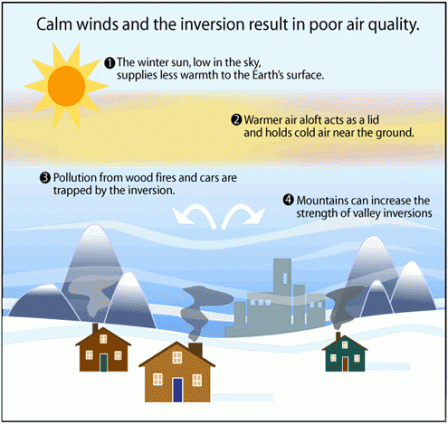Burn Bans on Indian Reservations in ID, OR, and WA
Burn Ban Alert
There are no EPA burn bans currently in effect. See current burn ban status for more information.
EPA has authority under the FARR to issue temporary bans on certain types of outdoor burning on reservations in Idaho, Oregon, and Washington.
- Current Burn Ban Status
- About EPA Burn Bans
- What Types of Burning are Exempt?
- Delegated and Tribal Burn Bans
- State and Local Burn Bans
Current Burn Ban Status
There are no EPA burn bans currently in effect for reservations in Idaho, Oregon, and Washington.
See about EPA burn bans below for more information about what types of burning are restricted during an EPA burn ban, potential health impacts, and other local burning requirements.
Before burning, also check for delegated and tribal burn bans.
For questions, or to receive EPA burn ban announcements by email, contact the FARR Hotline (r10_farrhotline@epa.gov) or 1-800-424-4372.
Avoid Unnecessary Burning During the COVID-19 Pandemic
The COVID-19 virus is burdening tribal communities across our region, threatening respiratory health, and impacting community wellbeing. EPA Region 10 is concerned about tribal communities and thus recommends avoiding open burning and the use of prescribed fire during the pandemic.
By preventing unnecessary exposures to smoke, we can help protect susceptible communities. Smoke irritates the lungs of all individuals, even healthy people, may cause symptoms that could be incorrectly attributed to COVID-19, and can have grave effects on those with compromised health, including those who are currently ill with COVID-19.
Many Region 10 tribal, federal, state, and local partners have already taken steps to stop outdoor and prescribed burning during the pandemic, and others have requested that everyone avoid unnecessary burning and instead pursue alternatives. Tribal governments may have already issued restrictions or offered additional guidance for the public to consult or consider. If burning cannot be postponed, please take steps to reduce your exposure to smoke. Please join this effort to protect air quality during this critical time.
EPA Region 10 recommends avoiding open burning and the use of prescribed fire while the COVID-19 virus continues.
By not burning, you will be helping members of your community, local fire departments, and first responders. Fire departments and first responders are doing everything they can to protect their own health, so that they are ready to protect you if needed. Instead of outdoor burning of any type, please consider postponing or cancelling your burn.
If you must dispose of materials, consider these alternatives:
- Lawn mulching - Leave grass clippings on your lawn to add nutrients back into the soil and improve lawn health.
- Composting - Compost yard waste at home to recycle organic material and add nutrients back into the soil.
- Chipping - Add chipped brush, pruning, or wood waste to your compost pile or soil to increase nutrient content.
- Curbside pickup - Collect and separate yard waste, organic material, and recyclables and set out for curbside collection. Check with your local government or waste management company for local services.
- Landfills - Many landfills offer free or reduced fees for yard waste.
We recognize that cultural and ceremonial burning or fires may need to continue during this pandemic.
About EPA Burn Bans
When an EPA burn ban is in place, it applies to all outdoor and agricultural burning - including camping and recreational fires - in all areas within the external reservation boundaries regardless of ownership or tribal membership. See exemptions below.
We also request that reservation residents reduce all sources of air pollution, including excess driving and idling of vehicles, and the use of woodstoves and fireplaces unless it is your only adequate source of heat.
Air pollution can have significant health impacts. Cooperation from the community will help people who are at risk during this period. Those most at risk are children, the elderly, pregnant women and those with difficulty breathing and with heart and lung problems. Those at risk should avoid outdoor exercise and minimize exposure to outdoor pollution as much as possible.
Also check with your local fire department or appropriate tribal agency for any local burning requirements. The Coeur d'Alene, Colville, Nez Perce, Quinault, Swinomish, and Umatilla Tribes have delegation or their own authority to call their own burn bans (see delegated and tribal burn bans).
What Types of Burning are Exempt?
Ceremonial and traditional fires are exempt from outdoor burn bans called by EPA.
Delegated and Tribal Burn Bans
If you live on one of the following reservations, you should also check with the tribe before burning:
Coeur d'Alene Indian Reservation
- Visit Coeur d'Alene Tribe Smoke ManagementExit or call 800-345-1007.
Colville Indian Reservation
- Visit Colville Air Quality Program Burn Bans Exitor contact Kris Ray, Air Quality Program Manager, at 509-634-2418.
Nez Perce Indian Reservation
- Visit Nez Perce ERWM Air Quality Program Exit or call 800-720-4089. You must have a burn permit issued by the Nez Perce Tribe in order to conduct burning on the Nez Perce Reservation. See our tribal burn permit programs page for more information.
Quinault Indian Reservation
- Visit Quinault Air Quality ProgramExit or call 360-276-8215 to find out whether burning is allowed.
Swinomish Indian Reservation
- Visit Swinomish Air Quality Program Exit or call the Swinomish Burn Hotline at 360-466-2722. Fires greater than four feet in diameter require a burn permit from the Planning Office.
Umatilla Indian Reservation
- Visit Umatilla Office of Air Quality and Burn Line Exit or call 541-429-7080. You must have a burn permit issued by the Confederated Tribes of the Umatilla Indian Reservation order to conduct burning on the Umatilla Reservation. See our tribal burn permit programs page for more information.
State and Local Burn Bans
If you live outside of an Indian reservation, contact your state or local air quality agency for more information about burn bans in your area.
The following links exit the site Exit

